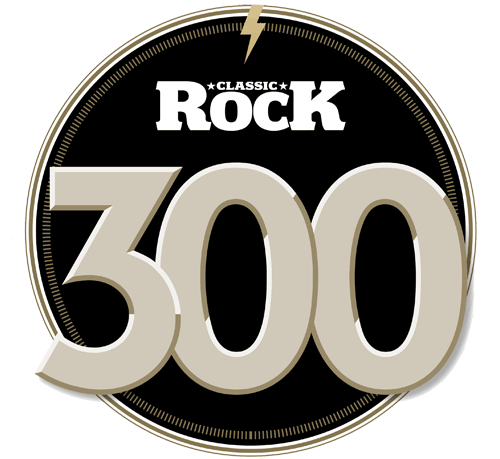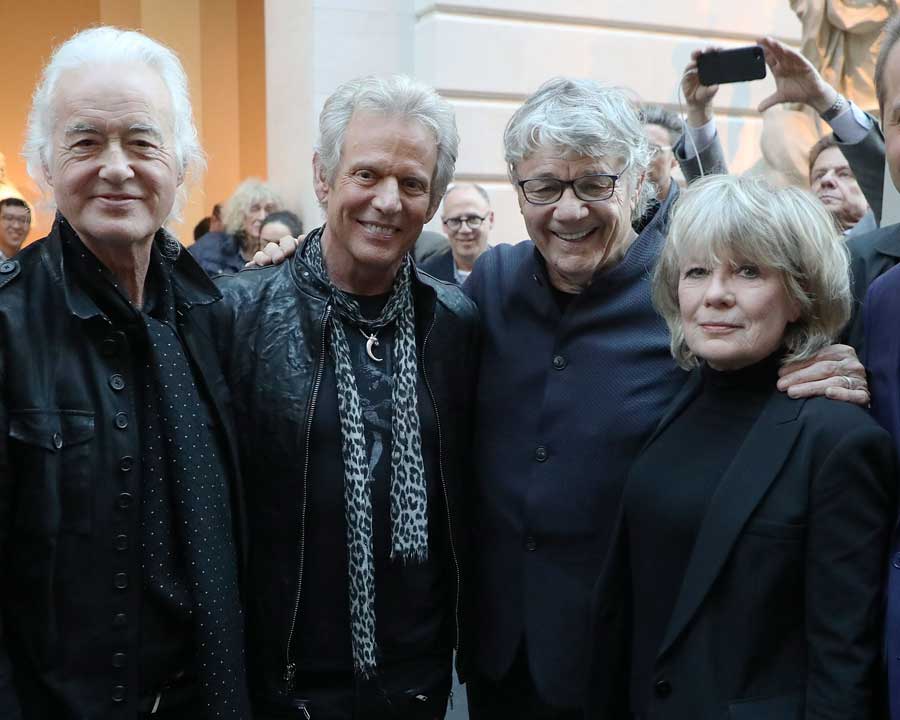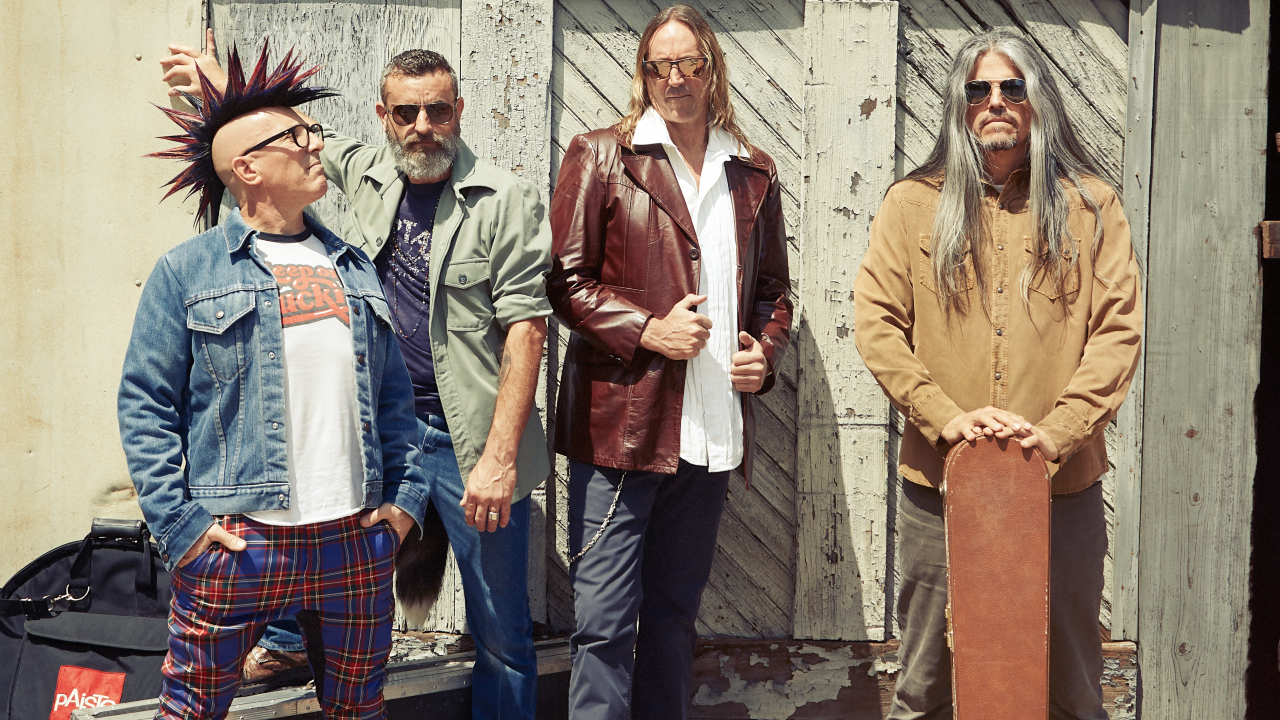Jimmy Page on gatekeeping Led Zep, playing the Olympics, and the tribes of Morocco
Interview: We catch up with Jimmy Page to discuss the passing of time, old friends, and why he won't tell us what he's doing next

Select the newsletters you’d like to receive. Then, add your email to sign up.
You are now subscribed
Your newsletter sign-up was successful
Want to add more newsletters?

Every Friday
Louder
Louder’s weekly newsletter is jam-packed with the team’s personal highlights from the last seven days, including features, breaking news, reviews and tons of juicy exclusives from the world of alternative music.

Every Friday
Classic Rock
The Classic Rock newsletter is an essential read for the discerning rock fan. Every week we bring you the news, reviews and the very best features and interviews from our extensive archive. Written by rock fans for rock fans.

Every Friday
Metal Hammer
For the last four decades Metal Hammer has been the world’s greatest metal magazine. Created by metalheads for metalheads, ‘Hammer takes you behind the scenes, closer to the action, and nearer to the bands that you love the most.

Every Friday
Prog
The Prog newsletter brings you the very best of Prog Magazine and our website, every Friday. We'll deliver you the very latest news from the Prog universe, informative features and archive material from Prog’s impressive vault.

This interview was conducted to mark the 300th issue of Classic Rock magazine, which launched in 1998. The magazine is available to purchase online, and also features interviews with Ozzy Osbourne, Rick Nielsen, Def Leppard, Alice Cooper, Geddy Lee, Slash and many more.
As Classic Rock’s inaugural issue hit newsstands, Jimmy Page was already one of the genre’s most recognised, respected and revered icons. His trailblazing tenure with Led Zeppelin apparently over, he’d recently reconvened with Robert Plant for Unledded and Walking Into Clarksdale’s palate-cleansing reinventions, and was on the cusp of hooking up with The Black Crowes to revisit Zep’s catalogue in significantly rambunctious style.
Twenty-four years later, the recipient of our 2007 Living Legend award pours himself a glass of water to consider his early twenty-first century and his, as yet tantalisingly unwritten, future.

When Classic Rock launched in 1998, the musical landscape was very different to how it is now.
There was a really thriving musical community going on and surprises coming out around that time. People were still pushing their abilities and coming out with great stuff right across the board. The main difference between then and now was that there were a lot of guitar-based bands around.
I was always fascinated to see what people could come up with in that format, because that was always the responsibility I’d given myself, really: to push guitar music in directions that maybe hadn’t been explored before, certainly up until that point in time. So there was a lot of really good stuff going on, but I wouldn’t necessarily know about it, because I was always so deeply involved in what I was doing.
You’d just begun your collaboration with The Black Crowes.
That started at the Café De Paris: I was playing at a charity event for Warchild, and Chris and Rich [Robinson] came along to be part of the band. And my goodness gracious… Rich is massive, his guitar sound and riffs are brilliant, and then you’ve got Chris who is an absolutely amazing vocalist. So just to be jamming with them for that one night was incredible. Rich was just soaring with this improvising and having as good a time as I was. In fact we’re all having a great time and really enjoying it.
Sign up below to get the latest from Classic Rock, plus exclusive special offers, direct to your inbox!
So a little later their manager called me up and asked if I’d like to repay the favour by playing with them in the States, so I said I’d love to. Going into rehearsals, I figured I might have to show them how to play this and that, but not a bit of it, they knew the music inside out. I thought: “This is so great, there’s a lot of love and mutual respect here. We’re going to have a great time.” And we did.
Speaking of the Café De Paris, you came along to the first Classic Rock Awards, attended most of them and were honoured as our Living Legend in 2007. What are your memories of those events?
I just remember them being fun. They were tribal, and in a good way. There was a good spirit to it and it was always pretty respectful. The bands that played did a really good job, because it could be a tough audience. It was interesting for me because I’d hear aspects of music I might not have otherwise picked up on, and that’s what it’s all about really. But yeah, it was always fun, and it was lovely to get the Living Legend award in 2007.
They also offered a rare opportunity for old friends to meet up who hadn’t seen each other for an awfully long time. I particularly remember the year when you and Alice Cooper were both there.
When Led Zeppelin went over to play in America we did some dates opening for Vanilla Fudge. The first show we did on our own was at the Whisky A Go Go in LA and Alice Cooper was on the bill. That was in January sixty-nine, so that’s how far back we go. So those Classic Rock Awards really were great tribal gatherings of the clans, a time to meet old pals and to make new ones.
In 1998, did you have any notion that Led Zeppelin might reunite, or did you consider that chapter closed?
In ninety-five, when we toured the Unledded project, the idea was to represent some of the songs in a different way, which we’d do every night when we toured with Led Zeppelin. There was always something different to each number. But to give the material a whole new suit of clothes we applied the orchestra and the Egyptian orchestra along with other exotic sounds, like the hurdy-gurdy player. Robert and I did the lion’s share of the writing in Led Zeppelin, so we were both keen to do something with the two of us, so that’s basically what we did.
You’d also just delivered Walking Into Clarksdale.
The idea of Walking Into Clarksdale was to do an album without the guitar overdubs that I’d usually use for textures and dynamics, just do things with the one guitar. So I took that on as a bit of a challenge, and I thought it was really successful. There were moments of such suspense: Robert’s vocals coming on with the guitar, just a ghosted chord as a song is building toward the chorus… there was really some good work on that album. I really enjoyed both of those projects. And the connection I had with Michael Lee, the drummer was exhilarating and fulfilling in every way really, because there was lots of improvising going on.
When Classic Rock launched, streaming and social media didn’t really exist. Now they’re both an unavoidable part of our lives. When they came along did you welcome or resist them?
When I was with the Crowes, Napster was happening. That’s the first one I was aware of, because scouring the internet isn’t something I did then or do now. I did do a website, because I was doing music no one was going to put out. I wasn’t even going to talk to a record company about it, so the only way to put it out was via a website. Then, more recently, I’ve had an Instagram account that I’ve put a lot of work into and that’s been great fun.
Obviously, downloading and streaming have seriously affected artists’ ability to make money. Do you fear for rock’s future as an economically viable career path for young musicians?
Well, first of all, Tom Gray from Gomez is a hero. He should be on your front page. He’s been lobbying the government to regulate music streaming with his Broken Record campaigning group for the last couple of years, and as a result the government set up a select committee to look into it, and that was an eye-opener. I made a statement because I obviously believe all musicians should be paid for what they do.
There’s also been a massive vinyl resurgence.
Well, I’ve literally never stopped listening to vinyl. I was very disappointed when CDs came out because I didn’t like the sound of them. So much was lost with CDs, and then MP3s, they took so much of the depth, the whole panoramic three-D, or even five-D quality, of the audio experience. So it was great to see the vinyl resurgence. Aside from the sound, there’s the tactile experience, the artwork, liner notes you can read without using a magnifying glass, and the act of actually putting on an album. It’s a lovely little ritual that I never tire of.
You’ve spent an enormous amount of time working on the Led Zeppelin catalogue for the Deluxe Edition reissues.
When CDs first came out the record company started to put out versions of Led Zeppelin albums, and I thought: “My God, I know CDs don’t sound very good, but I know they can sound better than this.” So I went in and supervised the remaster of the whole catalogue so we had proper CDs out there.
I wanted to put out all of the albums, remastered, with a companion disc providing a snapshot of what else was going on in the studio at the time: alternate versions, early generations of mixes, overdubs like that wonderful electronic thing that we created in the middle of Whole Lotta Love that stopped it being a radio single… that was good planning [laughs]. On hearing that track without the overdubs, it’s pure energy. I thought I’d love people to hear this, to show what Led Zeppelin was like in the studio, just how raw and edgy.
What are some of your personal highlights of the past twenty-four years? And have you ever been more self-conscious than when you were standing on top of that bus in Beijing’s Olympic Stadium?
It might sound corny, but that really was a highlight. It was like passing on a relay baton to the next people hosting the Olympics, which was London. People were saying: “Oh, you shouldn’t do that.” And I thought: “Oh, yes I should.”
Those athletes work so hard on getting to the Olympics, focus all their efforts on giving their prime performance on that one day, and I can relate to that. So to be able to do that for the London Olympics would be really great. When they said they wanted the whole full-length version of Whole Lotta Love, I said: “Really? No edits?” “No, really, the full version.” So I said: “Now you’re talking.”
Then when they said Leona Lewis would be singing, I thought: “This is gonna be really interesting.” And boy oh boy, she was really phenomenal. Her vocal was great. I had a great time, and it had the largest audience of anything I’ve ever done.
You could see by the look on your face you were really enjoying it.
It was bloody hot, sitting in the bus waiting for the thing to take you up on the hydraulics, but it went without a hitch and it was fabulous. So that was a high point. Another high point was being represented in the Play It Loud exhibit at New York’s Metropolitan Museum Of Art.
I mean, here’s a kid who started out playing a campfire guitar left behind by the previous occupants of a house where I lived with my parents in Epsom. Then the whole skiffle thing happened, I got a connection with the acoustic guitar, and then there’s everything the electric guitar meant to me.
People who weren’t musicians, rock, rockabilly or blues fans, would look down their noses at solid-bodied guitars. And now, to actually be part of something really heralding the guitar: the physics behind it, the design, its legacy, what it meant to the youth and to musicians, in the Met? That’s the most phenomenal thing.

What have you enjoyed listening to over the past couple of decades?
To be honest, I’ve been really involved in listening to Zep stuff, stuff that preceded The Yardbirds’ stuff. I’ve been archiving, going from analogue to digital. It’s all in real time, so if you’re doing it properly there’s no quick route. You’ve got to listen, make notes, archive efficiently. So I’ve been working on that over a period of decades, finding and revisiting things.
Sometimes I’d go: “Oh, I sort of remember that, but I didn’t realise it was as good as that”, and sometimes: “Why did I do that?” [laughs]. What do I listen to? If you’d asked Jeff Beck in the early days, he’d have said Jimmy has such an eclectic mix of records. And sounds, and I still do. I still listen to all those different genres because I find it gives me so much, it’s like sustenance.
At times, when I’ve felt out of sorts, I just put on the early things that got me hooked. Things like Chuck Berry. The whole attitude of those records, the enthusiasm of what’s being said and the positivity. It doesn’t take long for it to change your frame of mind.
Last time we spoke you told me you didn’t want to waste your time during lockdown. So how have you been occupying yourself over the last couple of years?
Archiving, working on various paths and routes of projects, but I’m not going to say what the projects are. There’s various things I’m working towards. It’s not just one thing, it’s multiple things, and I don’t want to even give a hint, because if you do… You give a one-sentence sound bite, and then if it doesn’t materialise it’s like: “Why didn’t you do a solo album?” So I don’t want to say what it is that I’ve got planned, because I don’t want to give people the chance to misinterpret it.
You only need to look at online forums and it’s clear we’re missing you, Jimmy. And a new record would be a great reward for living through the past few years of madness.
Well, I really can’t put on record what the new record is. I’ll leave it to your imagination. The thing is there are so many ways I could present myself right now. Actually, not right now. I’ll rephrase that: within a space of time [laughs]. I’ve come across all these various projects I did.
And one of the things I did recently is listen to a recording I made of the Marrakesh folk festival, with the tribes coming in from all over Morocco, in 1975. It’s fascinating. Tribal stuff passed on from father to son and kept alive because of the folk festivals, Essaouira, and all the rest. Where there are people who want to hear the Berbers. I certainly do, it’s good for the soul.
You’ve supported Classic Rock magazine from day one. How does it feel to find yourself at issue three hundred?
Well, I’d like to compliment you on the fact Classic Rock has always been a really great magazine. It’s one that I read, and you’ve now come to your three-hundredth issue and need to be congratulated for that. I mean, it’s terrific because it’s physical media, and there it is, on the newsstands. It can be acquired. It’s like me and my vinyl, it’s a tactile thing. And I really like that; I don’t want to see everything on a bloody screen.
I like to hold an instrument and play chords on it, a melody line. It’s the same thing with a book or a magazine. So congratulations on your three hundred, and keep up the good work, because there’s a big audience out there, like me, who really love what you do

Classic Rock’s Reviews Editor for the last 20 years, Ian stapled his first fanzine in 1977. Since misspending his youth by way of ‘research’ his work has also appeared in such publications as Metal Hammer, Prog, NME, Uncut, Kerrang!, VOX, The Face, The Guardian, Total Guitar, Guitarist, Electronic Sound, Record Collector and across the internet. Permanently buried under mountains of recorded media, ears ringing from a lifetime of gigs, he enjoys nothing more than recreationally throttling a guitar and following a baptism of punk fire has played in bands for 45 years, releasing recordings via Esoteric Antenna and Cleopatra Records.
